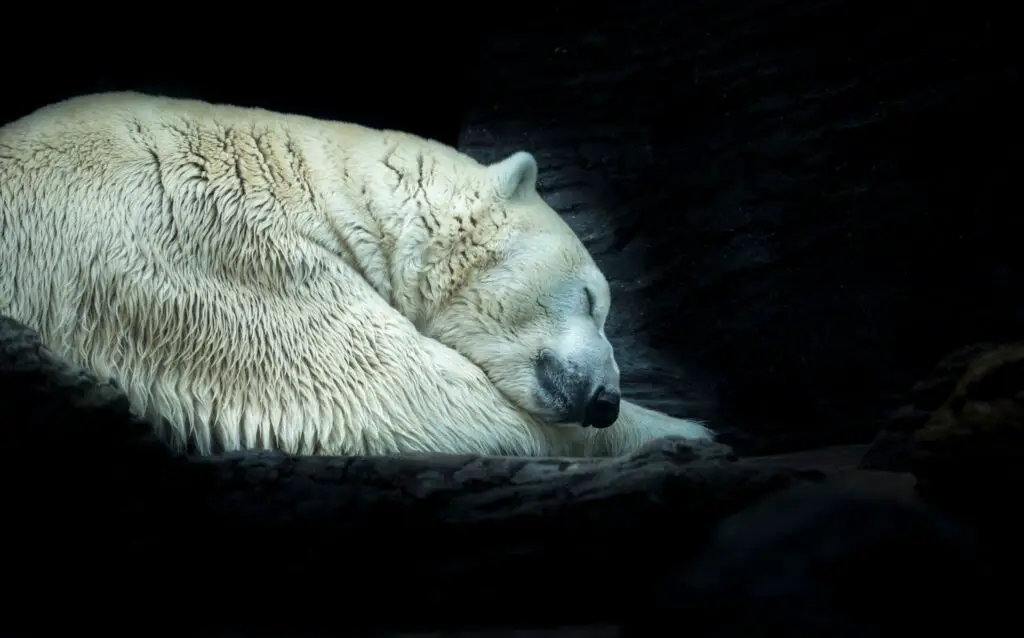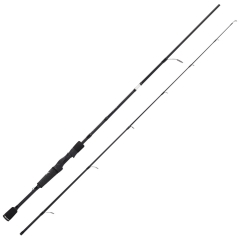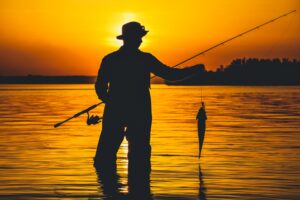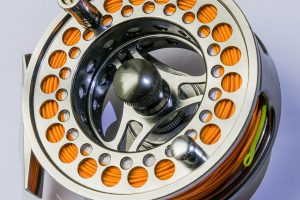Hibernating is when the animal is in a dormant state where its metabolic rate slows down, and so do most of its other activities that require energy. This usually happens in winter when the temperature outside is too cold for the organism. Unlike the animals that hibernate, catfish do not partake in this activity. However, some people think that catfish hibernate due to behavioral changes in the fish. That is, of course, incorrect because catfish are active all 12 months of the year. To learn more about catfish behavior in winter and why it might be assumed that they are hibernating. You will also learn how to catch catfish in winter when most fish prefer to stay low-key due to the weather.
Can catfish hibernate in winter?
Catfish will not hibernate during the winter as they still need food to survive. Due to this assumption, many anglers assume that catfish are just summer fish and cannot be caught during the winter, so they give up. While most places do not allow fishing in winter, catfish can still be caught in winter using slightly different techniques. The fish bite in winter when it is cold and swim in the water, although it might seem a little slower.

Why does it seem like catfish are hibernating?
Many people assume that catfish are hibernating due to the behavioral and other changes in the fish during the colder months. Not to mention that catfish are warm water fish because they are cold blooded. Here are some signs that might mislead you into thinking that catfish are hibernating when they are not.
The catfish is slower
The catfish will seem less active and more lethargic in winter. This is because the metabolism of catfish does slow down, but not to the point of hibernation. Every fish relies on the water temperature a lot. When the temperature is higher, the fish is more active and eats more. When the temperature is lower, the fish is much slower and lethargic. This does not mean that the fish is hibernating. This is simply how the fish’s metabolism works and changes with temperature to keep the fish alive.
The catfish does not bite
This is simply a myth that in winter, the catfish will not bite. Of course, since it is slower and more sluggish, it might seem like catfish will not bite you, but it will. As soon as you have bait in front of the catfish, it will bite it. When the catfish realizes it is bait, it will fight with all its might. Therefore, fish should not be underestimated. There are going to be some fish that might not bite much in the winter, but catfish are not one of those species.
The catfish are absent
If you go fishing in the same places that you did in the summer for catfish, you will not find them. These places are now too cold for the fish to survive, so that they will migrate to an area where they can be in deeper water where the water’s temperature will stay warmer in the lower areas.
This is again a misunderstanding because, in winter, the number of catfish does not change or decrease, the fish simply hide better. These fish move toward the bottom of the water and hide in caves and other places in schools. This way, they are “winter resting” to keep warm until the weather is warm again.
How to catch catfish in winter?
Catching catfish in the winter is very easy. In fact, with proper technique, it can be much easier than catching catfish in the summer. You just need the proper gear and preparation so you can stand for hours in the winter when it is very cold. Therefore, you just need to keep the following points in mind, and you will be able to catch the catfish. Of course, this depends knowing where the fish would be located and experience, as well.
Find a suitable spot
As mentioned above, during winter, catfish huddle together and move much deeper into the water. They will find the deepest holes in the water, which are called wintering holes, and here the temperature will be the steadiest, and they can huddle together. The food that they eat during the winter will not be as much as in the summer. They will eat whatever they want if they are hungry, and food is available. The chance of you catching it depends entirely on whether you will be able to find these holes successfully. Once you do, you will catch many catfish together, making the experience even sweeter. These wintering holes can be deep. In large lakes, you will find them near the mouths of creeks, dumped into the lake, and at the base of fingers at a reservoir. In rivers, these are usually located downstream, where a small river or creek dumps into the main river. These areas will be wide enough to fit the catfish and have less current.
Fish at the right time of the day
To increase your chance of finding these wintering holes, you must go fishing at the right time. This time of the day is when the weather is at its warmest. Usually, this means noon or late in the day before evening. Early mornings and late nights are always the worst times to fish in winter because the fish will be the slowest during this time. When the weather gets a little warmer, catfish can move around a little and alert you of their place.
Conclusion
Now you know that catfish do not hibernate. The fish might seem more sluggish and absent, but that is simply because the cold temperature changes the behavior of the catfish. It is actually much possible to catch catfish in winter because all the fish are in just one place and not spread around like in summer. Moreover, these fish are hungry and have less energy, so if you have patience, fishing for catfish in winter can be very rewarding.











